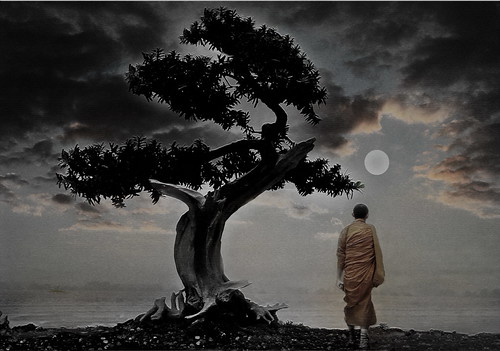
Today is Sunday, a day of rest to some, but to heathens with Monday meetings like myself, a day of catching up and doing all the things we thought we'd get done earlier. Unfortunately for me, our LDAP server that gives us access to the network is down... again... for the third weekend in a row, preventing access to our workstations, data, and worst for me, my research notebook, which I keep on our group's wiki. I admittedly felt a strong temptation to get out, enjoy the sunshine, and play a little guitar, but here I sit, in the cold, gray, fluorescent-lit cube. I'm here because I'm trying to be less incompetent as a scientific researcher.
One of the things that particularly makes me feel incompetent is my lack of knowledge of scientific literature, and (to a greater extent?) my lack of enthusiasm for reading it. I don't know why, and I give myself grief for this, but I often find reading scientific papers just plain boring. The funny thing is, I really appreciate science, by which I mean the technique of elucidating one's knowledge of the world through rigorous, reproducible means, and keeping a skeptical mindset, especially when it comes to one's own work. Likewise, I will never cease to find biology or computational technology among the most satisfactory pursuits for the very limited time and energy I have here on this good Earth. Yes, science, itself, is awesome, but the excitement of it gets stripped away in a lot of formal education environments, and for me, in the way scientists present it in their formal literature.
I have to qualify that last statement as pertaining to myself because I have colleagues who clearly find the literature still stimulating; a good example is Arjun Krishnan. At any given point, Arjun can tell you a few relevant papers he's read on seemingly any subject, he can give you solid summaries, and he turns it into good research questions, some of which he's following up on. He's a paragon of the Good Graduate Student; I have no doubts Arjun is going to be a superstar scientist in whatever field he ends up in, if not in general. I am certainly no Arjun, however, so I have to focus on humbler goals.
One of our tasks as students in the Murali group is to canvas over a dozen of the journals in bioinformatics and computational biology and scout for pertinent articles. I decided to use my "downtime" to have at the growing stack of journal headlines in my RSS feeds, and since I needed a place to start, I thought I'd tackle my Nature stack, which I'd neglected since the end of May. This meant a back log of over two hundred articles. I scanned through each headline, pausing at ones that had life sciences subjects, opening up a few that had keywords that caught my attention, taking a genuine look at a few of those, and skipping over the rest. At the end of the process, I felt really disappointed.
Of the several hundred articles, I only wound up reading three research highlights, the abstract of one letter, the abstract and some of the figures in another, and the abstract and some of the methods in another, and none of these proved at all pertinent to research I am supposed to be doing now.
Worth pointing out more, at no time did I read the title of a full-fledged research article and think, "Wow, I should read that," or even, "Gee, that sounds interesting." The vast majority of the titles just struck me as extremely esoteric, and this confuses me the most. Aren't Nature, Science, and PNAS supposed to have articles that are of interest not just to a specific field, but to the entire scientific community? But you know, I'm not interested that "GOLPH3 modulates mTOR signalling and rapamycin sensitivity in cancer", or that "Histone H4 lysine 16 acetylation regulates cellular lifespan", or in "A newly discovered protein export machine in malaria parasites". I fail to feel these discoveries shaking my perception of the world around me, of giving me a new topic to explore, or helping me make my own discoveries.
Nature is a journal that can make tenure, a journal where scientists experience great thrills for getting in and great envy when their colleagues do, a journal that says, "I publish like a boss!" It's a journal where my boss says, "You should be reading it anyway." So obviously, like so many things in scientific research, I just don't get it. And now, after my attempt to gain a little face today, I'm right back to where I started. Go ahead, just say it—I'm the worst scientist in the world. I'm a cotton-headed ninny muggins.